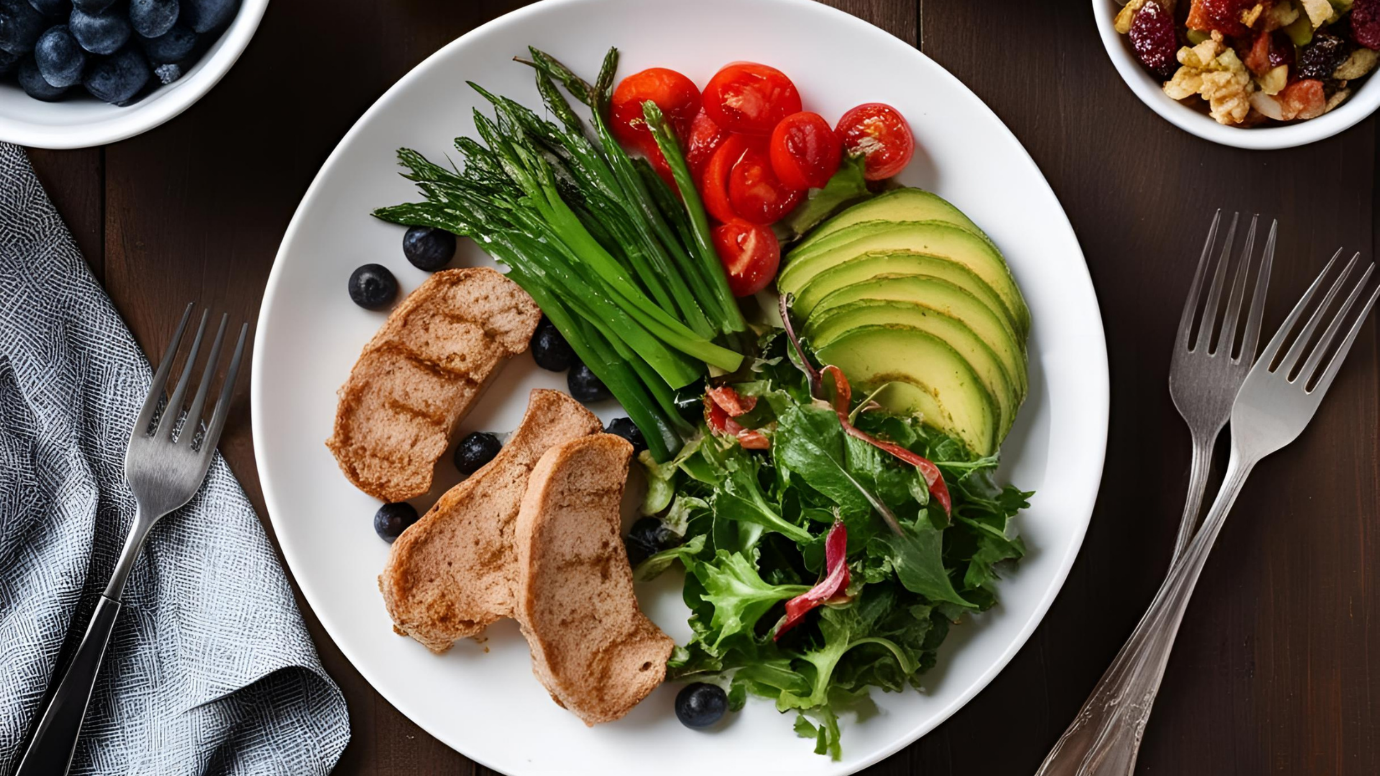Welcome, comrades-in-wellness! We’ve each experienced this: kicking off a diet with drive and grit, just to falter a few weeks later.
Living well is tough, but dropping pounds, boosting overall health and warding off disease make it worthwhile– as we’ll show you.
Yet, keeping up with your nutrition goals and staying motivated over time is difficult.
This is why we have put together 10 key tips to help you stay on track and find long-lasting success on your wellness journey. Are you ready to make healthier choices?
1. Find your motivation
Nutrition plans are tough to stick with– no doubt about it. But the trick to staying on course is simple: Just connect with your motivation.
Ask yourself why you want this change. Better health or looks? Both? Write down your reasons and keep them handy for when you need willpower. (For best results, be specific!)
2. Think twice before crash diet
Many of us have felt the pull of trendy diets that pledge rapid weight loss. But pause for a moment and ask yourself, can I stick with this over the long haul?
Although crash diets might bring immediate results, studies indicate most folks end up putting weight back on— if not more— within five years.
Rather than yo-yo dieting, concentrate on developing good-for-you behaviours that you can keep up with a healthy, balanced diet– and banish those excess pounds for life!
3. Set realistic goals
Don’t set lofty, unrealistic goals. You’ll only become disappointed and quit your healthy eating plan. Instead, set yourself small, attainable targets.
Meeting these will keep you going– and when you do reach them, celebrate your success! It’s important to stay driven; one way is by marking off milestones on the road to an overarching aim.
And don’t forget that moving ahead slowly is still better than not moving at all!
4. Drink plenty of water

It is widely known that one should drink at least eight glasses of water to stay healthy. Nonetheless, did you know that being hydrated can facilitate the achievement of your nutrition goals? Yes it does!
Drinking lots of water has another benefit aside from simply being refreshing: It may stop both overeating and dehydration in their tracks.
When you feel hungry next time, have a glass of water. You might realize that your hunger was actually thirst!
5. Practice mindful eating
One may fail to notice overeating when eating and watching television, using social media or working on a computer.
To avoid overeating, turn off the screens while taking meals and focus on your food. With no distractions, your food will be more enjoyable!
6. Eat several meals during the day
Missing meals might appear effective for losing weight, but it may actually impede progress.
If you cut calories too much, it can result in feeling extremely hungry and eating too much later on– which will sabotage your nutritional objectives.
A better idea? Have 4-5 small balanced meals each day to maintain energy levels and prevent those cravings from creeping in.
And don’t forget; dinner should be your final meal in the evening!
7. Enjoy your favourite foods
We each experience irresistible food cravings from time to time. However, it might surprise you to learn that avoiding these foods could hurt you rather than help.
One solution is to integrate non-dieting techniques into your eating regimen; for example, reacquainting yourself with what real hunger feels like.
This tactic has been shown not just to curb craving unhealthy stuff but also may aid weight reduction.
So there’s no need feel guilty next occasion want some ice cream: just have a scoop– it’s all part of balancing act!
8. Make your plate more colourful
If you want to be healthy, eat lots of different fruits and vegetables! Each colour group gives you different but essential vitamins and minerals– all of which keep you in good shape.
Many coloured fruits and veggies are also full of water and fibre: this means they fill you up on fewer calories than other foods while staying tasty enough in their own right. So pep up mealtimes with a rainbow salad or stir-fry!
9. Include fibre in your diet
Fiber is important for digestion, constipation, managing cholesterol levels and maintaining a healthy weight– yet it’s frequently ignored!
The average American eats just half the recommended daily amount (RDA) though: 25g for women and 38g for men (or 14g per 1,000 calories).
Foods high in fibre that you might want to include in your diet are:
- Oatmeal, beans or lentils (anything from this family)
- Whole grains like brown rice or wholemeal bread
- Nuts and seeds
- Fruits plus vegetables
10. Get enough sleep

Ensure that you include proper sleeping hours into your nutrition schedule. Sleep deprivation affects the level of hormones; hence one may be susceptible to overeating.
When you’re low on sleep, your body makes more ghrelin– which triggers feelings of hunger and the urge to eat; at the same time, it produces less leptin– the hormone that tells you when you’re satiated.
So switch off Netflix (or whatever’s keeping you up) and head towards your bed if fat loss is your goal!
Remember: Nutrition and Exercise Go Together!

Nutrition and exercise are like twins that determine a healthy life. One alone cannot give you the best outcome.
Besides, monitoring what you eat and how much you exercise can serve as great driving forces throughout your fitness progress.
Improving your diet might not come easily but be encouraged because there is much information available to help in the process.
Remember people are different; therefore, what may serve as a solution for one individual may not work out the same way for you.
We should work together towards enhancing both our physical and mental health!
Concluding Thoughts
Maintaining your nutrition goals is challenging, but possible. Use these 10 tips to change old habits and create new ones for a healthier life. Stay committed– don’t give up!




